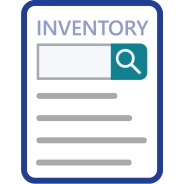What is CBI and what can be protected as CBI
Businesses often give us information that, if disclosed, may cause them commercial harm. Businesses can apply for protections under our laws. These protections mean we won’t publish certain commercially sensitive information about your introduction. Instead, we’ll publish more general information.
Where there is no protection of CBI, we only publish certain details about the introduction in any event.
Under AICIS, you can apply to have the following types of information protected as CBI:
When you can apply for CBI
You can apply for CBI protection of your chemical identity or end use in these circumstances:
When you:
- apply for an assessment certificate (Assessed category)
- apply for a commercial evaluation authorisation
- apply to vary the end use in a commercial evaluation authorisation (end use CBI applications only)
- apply to vary the terms of a listed chemical
- submit a pre-introduction report (Reported category — internationally assessed for human health and/or environment)
- apply to continue CBI protection for a listing on the Inventory
- flag information as confidential where we notify you that we wish to publish that information
- apply for a confidential listing on the Inventory (this applies if we assessed your chemical for a certificate before 1 July 2020 — see information about this on our Inventory transitions page)
If we approve CBI it becomes ‘protected information’.
How we assess your application
To be able to approve a CBI application, you must give us information that satisfies our statutory test (where we balance commercial prejudice and public interest).
When we review CBI
We review CBI status of listed chemicals every 5 years if we granted you:
- a masked chemical name (AICIS Approved Chemical Name) to protect chemical identity or
- a generalised end use to protect detailed end use details
You will need to tell us and pay a fee if you wish to reapply for CBI protection. We'll also need to reapply the statutory test.
Information about introductions we will publish
Where there is no protection of CBI, we'll publish information about industrial chemical introductions including chemical identity and end use in:
- Assessment Statements (chemical name and end use)
- Commercial Evaluation Authorisations (chemical name and end use)
- Inventory listings (chemical name, scope of assessment (which may include end use))
- Evaluation Statements (may include chemical name(s) and end use(s))
When we will publish certain details about a reported introduction
For introductions in the reported category, an introducer must submit a pre-introduction report (PIR).
We will publish certain details on this website if an international assessment of a chemical has been used in the PIR.
- chemical name
- end use
- name of international assessment body
Understanding the limitations of CBI protection
There are limitations to CBI protection in the legislation:
- to get CBI protection, an applicant must provide evidence that satisfies a statutory test
- if we approve CBI protection, it lasts for a maximum of 5 years, after which the applicant must provide further evidence to satisfy the same statutory test
- we can review CBI protection following an evaluation
- while CBI protection is in place, we may still disclose that information in certain limited circumstances (see following)
Learn about evaluations including possible outcomes
When we can disclose protected CBI
We can only disclose CBI in certain circumstances, including:
- when performing our duties under our legislation
- if it's required under the Freedom of Information Act 1982
- if ordered by a Court, or for the purpose of law enforcement
- to the owner for the CBI
- with the consent of the CBI owner
- if the information is already (lawfully) public
- to reduce serious risk to public health or the environment
- to certain government entities prescribed in our legislation, if it will assist them to perform their duties. Our legislation prescribes these entities as Commonwealth, State/Territory and international government entities. Anyone in the entity that we provide information to is prohibited from disclosing it, other than for the reason it was given to them - statutory penalties apply. In regards to international entities, AICIS will establish agreements (Memoranda of Understanding) with these bodies to maintain confidentiality.
We do not publish personal details about applicants and businesses.
Read about the 'statutory test' we apply to protection of CBI applications
